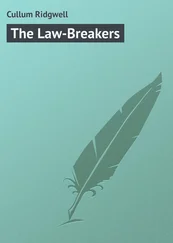Edwidge Danticat - The Dew Breaker
Здесь есть возможность читать онлайн «Edwidge Danticat - The Dew Breaker» весь текст электронной книги совершенно бесплатно (целиком полную версию без сокращений). В некоторых случаях можно слушать аудио, скачать через торрент в формате fb2 и присутствует краткое содержание. Жанр: Современная проза, на английском языке. Описание произведения, (предисловие) а так же отзывы посетителей доступны на портале библиотеки ЛибКат.
- Название:The Dew Breaker
- Автор:
- Жанр:
- Год:неизвестен
- ISBN:нет данных
- Рейтинг книги:3 / 5. Голосов: 1
-
Избранное:Добавить в избранное
- Отзывы:
-
Ваша оценка:
The Dew Breaker: краткое содержание, описание и аннотация
Предлагаем к чтению аннотацию, описание, краткое содержание или предисловие (зависит от того, что написал сам автор книги «The Dew Breaker»). Если вы не нашли необходимую информацию о книге — напишите в комментариях, мы постараемся отыскать её.
From the universally acclaimed author of Breath, Eyes, memory and Krik?Krak! (both Opera's Book Club selections), a powerful new work of fiction that explores the trials and reconciliations in the life of a man known as a 'dew breaker,' a torturer, whose past crimes in the country of his birth, lie hidden beneath his new American relaity. In Haiti in the dictatorial 1960's, Manhattan in the 1970s, Brooklyn and Queens today, we meet the dew breaker's family, neighbours, and victims. An unforgettable, deeply resonant book – of love, remorse, history, and hope, of rebellions both personal and political – The Dew Breaker proves once more that in Edwidge Danticat we have a major American writer.
“Breathtaking… With terrifying wit and flowered pungency, Edwidge Danticat has managed over the past 10 years to portray the torment of the Haitian people… In The Dew Breaker, Danticat has written a Haitian truth: prisoners all, even the jailers.” – The New York Times Book Review
“Danticat [is] surely one of contemporary fiction’s most sensitive conveyors of hope’s bittersweet persistence in the midst of poverty and violence.” – The Miami Herald
“Thrillingly topical… [The Dew Breaker] shines… Danticat leads her readers into the underworld. It’s furnished like home.” – Los Angeles Times Book Review
“Stunning… Beautifully written fiction [that] seamlessly blend[s] the personal and political, [and] asks questions about shame and guilt, forgiveness and redemption, and the legacy of violence… haunting.” – USA Today
“Fascinating… Danticat is a fine and serious fiction writer who has slowly grown as an artist with each book she has written.” – Chicago Tribune
“In its varied characters, its descriptive power and its tightly linked images and themes, [The Dew Breaker] is a rewarding and affecting read, rich with insights not just about Haiti but also about the human condition.” – San Francisco Chronicle
“[The Dew Breaker] is, most profoundly, about love’s healing powers. From its marvelous descriptions of place to the gentle opening up of characters, this is a book that engages the imagination.” – Elle
“With her grace and her imperishable humanity… [Danticat] makes sadness beautiful.” – The New York Observer
“Danticat has an emotional imagination capable of evoking empathy for both predator and prey.” – Entertainment Weekly
“With characteristic lyricism and grace, Danticat probes the painful legacy of a time when sons turned against their fathers, children were orphaned, and communities were torn apart.” – The Philadelphia Inquirer
“Delicate and poetic… Danticat [is] more than a storyteller, she’s a writer… Her voice is like an X-Acto knife-precise, sharp and perfect for carving out small details.” – Minneapolis Star Tribune
“Filled with quiet intensity and elegant, thought-provoking prose… An elegiac and powerful novel with a fresh presentation of evil and the healing potential of forgiveness.” – People
“[Danticat] fuses the beauty and tragedy of her native land, a land her characters want to forget and remember all at once.” – Ebony
“In these stories Edwidge Danticat continues to speak eloquently for those who in losing their sorrowful homeland have lost their voices.” – The Boston Globe
“Haitian-American writer Edwidge Danticat presents simple truths… this, the novelist seems to be saying, is how you understand; here is the primer for survival.” – The Atlanta Journal-Constitution













